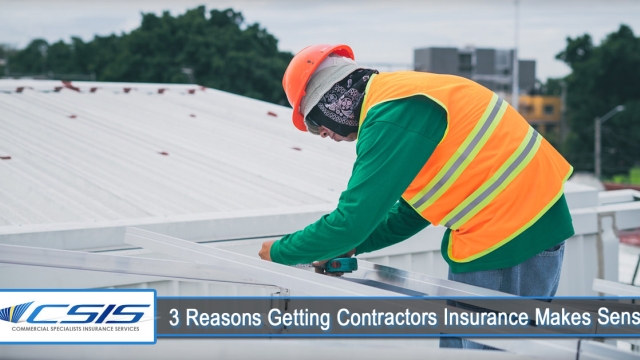
The Ultimate Guide to Protecting Your Home: Everything You Need to Know About Home Insurance
Welcome to the ultimate guide on home insurance, where we will equip you with all the knowledge you need to protect your home. Whether you are a homeowner, a contract worker, or a business owner, having the right insurance coverage is crucial to ensure peace of mind and financial security. In this article, we will delve into the world of home insurance, exploring topics such as contractor insurance, business insurance, and everything in between. Join us as we navigate through the complexities of coverage options, policy terms, and the steps you can take to safeguard your most valuable asset – your home. So let’s dive in and discover the comprehensive protection that home insurance can provide for you and your property.
1. Contractor Insurance Guide
In this section, we will provide you with valuable insights on contractor insurance. As a contractor, it is crucial to protect yourself, your business, and your clients by having the right insurance coverage. Here are a few key points to consider:

Understand Your Coverage Needs: Before selecting contractor insurance, it’s important to evaluate your specific coverage needs. Different types of contractors may require different insurance policies. For example, if you work in construction, general liability insurance can protect you against accidents or property damage that may occur during your work. On the other hand, if you provide professional services as a contractor, such as consulting or design, professional liability insurance may be more relevant to your line of work. Assess your operations carefully to determine the most suitable coverage.
Research Providers: Once you have determined your coverage requirements, it’s time to research different insurance providers. Look for reputable insurers who specialize in contractor insurance. Explore their policy options and compare not only the coverage they offer but also the premium rates and deductibles. Obtaining multiple quotes will help you make an informed decision and find insurance that fits your budget and needs.
Consult with an Insurance Professional: Navigating the world of insurance can be complex, especially if you are not familiar with the intricacies of contractor insurance. Consider consulting with an insurance professional who specializes in this field. They can guide you through the various types of coverage, explain any industry-specific terms, and help you navigate the claims process should the need arise. Their expertise will ensure that you have adequate protection for your contracting business.
Remember, contractor insurance is a vital component of your risk management strategy. By understanding your coverage needs, researching providers, and seeking advice from professionals, you can safeguard your business and enjoy peace of mind while focusing on your work.
2. Business Insurance Guide
In addition to protecting your home, it’s important to consider the insurance needs of your business. Whether you’re a contractor or a small business owner, having the right coverage can safeguard your livelihood. Here’s a guide to help you understand the basics of business insurance.
- Assess Your Risks
Before diving into the world of business insurance, it’s crucial to assess the risks associated with your specific industry or trade. Contractors, for instance, may face unique risks such as property damage or injury at a job site. By identifying these risks, you can tailor your insurance coverage to adequately protect your business.
- Consider General Liability Insurance
Home Insurance Ohio
General liability insurance should be a top consideration for any business owner. This type of coverage protects against claims related to bodily injury, property damage, or personal injury. For contractors, this insurance often provides coverage for accidents or damage that may occur while working on a client’s property.
- Explore Specialized Coverage Options
Depending on the nature of your business, there may be additional insurance options worth exploring. For example, contractors may benefit from professional liability insurance, which covers claims related to errors or omissions in their work. Other common specialized coverage options include property insurance, workers’ compensation, and commercial auto insurance.
Remember, each business is unique, so it’s essential to work with an insurance professional to determine the right coverage for your specific needs. By adequately protecting your business, you can focus on what you do best and have peace of mind knowing you’re prepared for any unforeseen events.
Next, we’ll dive into our third and final section, the Home Insurance Guide, where we’ll explore how to protect your personal property and assets within your home. Stay tuned!
3. Home Insurance Guide
In this section, we will cover the key aspects of home insurance, providing you with valuable information to help protect your home and belongings.
Choosing the Right Coverage:
When it comes to home insurance, it’s essential to choose the right coverage that suits your needs. Assess the value of your home and its contents to determine the appropriate coverage amount. Consider factors such as location, potential risks, and your personal belongings. It’s also crucial to understand the different types of coverage available, such as dwelling coverage, personal property coverage, and liability coverage.Understanding Policy Terms:
To ensure you have a clear understanding of your home insurance policy, familiarize yourself with the policy terms. Take note of the deductible, which is the amount you must pay out of pocket before the insurance coverage kicks in. Additionally, be aware of any exclusions or limitations on your policy, as well as the process for filing a claim. It’s always a wise idea to review your policy annually and make any necessary updates or adjustments.Taking Preventive Measures:
While having home insurance offers peace of mind, taking preventive measures can help reduce the risk of incidents and potential damage. Install security systems, smoke detectors, and fire extinguishers in your home to enhance safety. Regularly maintain your home and its systems to prevent issues such as water leaks or electrical problems. By being proactive, you can minimize risks and potential future claims.
Remember, home insurance is an important investment to protect your most significant asset. By understanding the coverage options, policy terms, and taking preventive measures, you can ensure the safety and security of your home and belongings.
This concludes our home insurance guide, and we hope the information provided has been helpful in navigating the world of home insurance.




